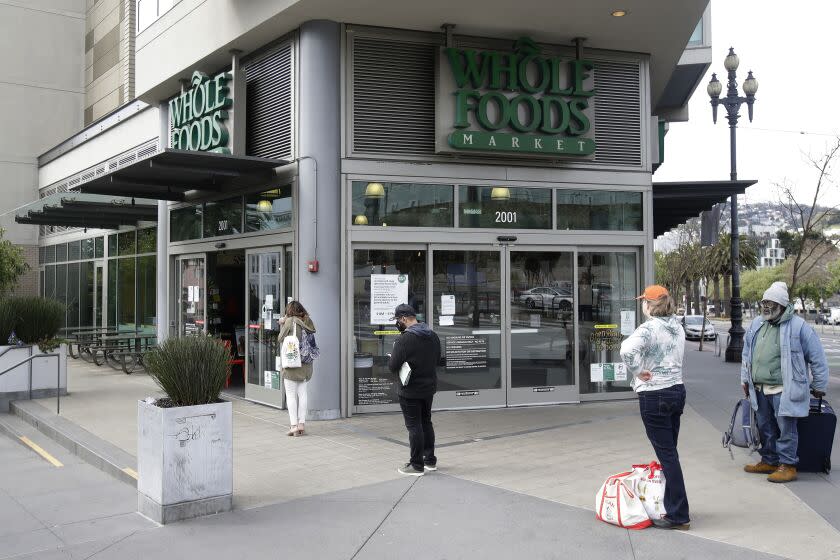Whole Foods closes San Francisco flagship store after a year, citing employee safety

Whole Foods Market is one of the latest companies to close a store in San Francisco due to public safety issues.
Whole Foods temporarily closed its flagship store in downtown on Tuesday, a little more than a year after it opened. On the day of the closure, a voicemail greeting directed callers to Whole Foods' eight other stores in San Francisco.
“To ensure the safety of our Team Members, we have made the difficult decision to close the Trinity store for the time being," a Whole Foods spokesperson said in a statement.
Employees who worked at the downtown Whole Foods "will be transferred to one of our nearby locations,” the spokesperson said. The downtown location, which is 65,000 square feet and located at 1185 Market St., could reopen if Whole Foods determines that the safety situation has improved, according to the spokesperson.
Crime has been in the spotlight in San Francisco, with last week's fatal stabbing of Cash App founder Bob Lee in the Rincon Hill neighborhood, and last July the district attorney said San Francisco was "at a tipping point" when it comes to public safety.
But city statistics show that overall violent crime in San Francisco fell 13.6% from 2019 to 2022, from 6,152 to 5,315 incidents.
San Francisco has seen store closures linked to claims of crime before, notably five Walgreens stores in October 2021. The company cited “organized retail crime” as the reason for shutting down the stores, but numerous skeptics, including Mayor London Breed, said the decision came down to economics.
In Los Angeles, a similar story played out in July, when Starbucks closed six stores due to safety concerns like drug use and threatening behavior. Customers and residents questioned the decision and the reasoning behind the closures.
This story originally appeared in Los Angeles Times.

